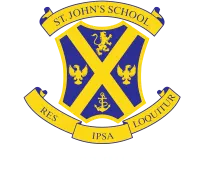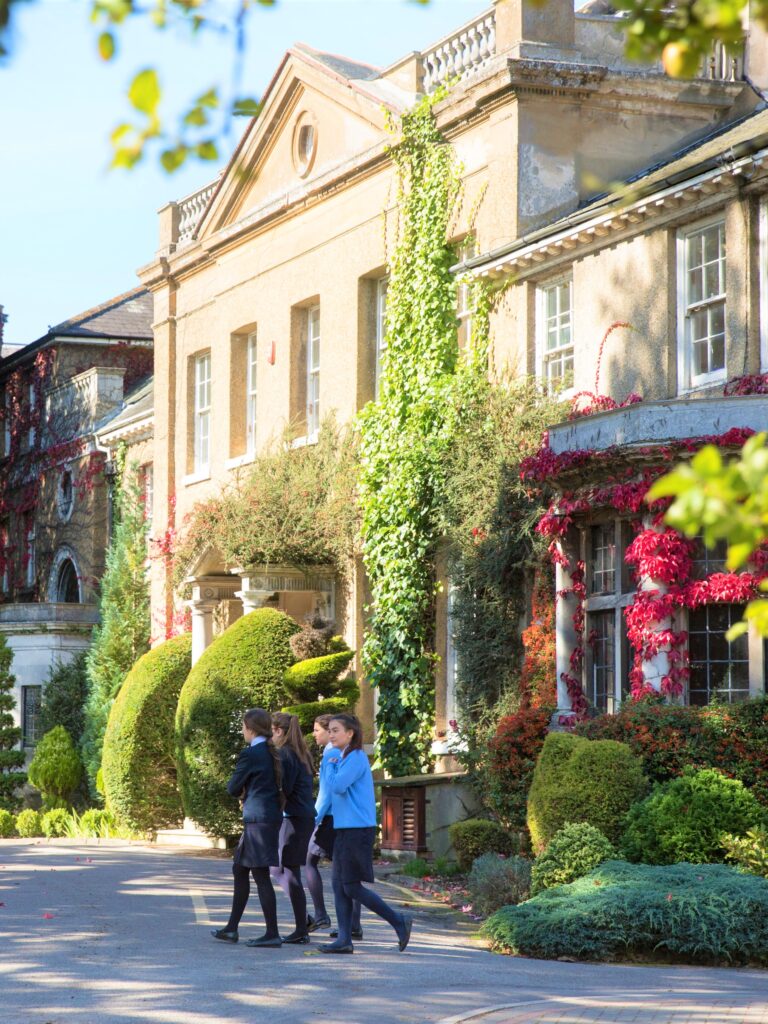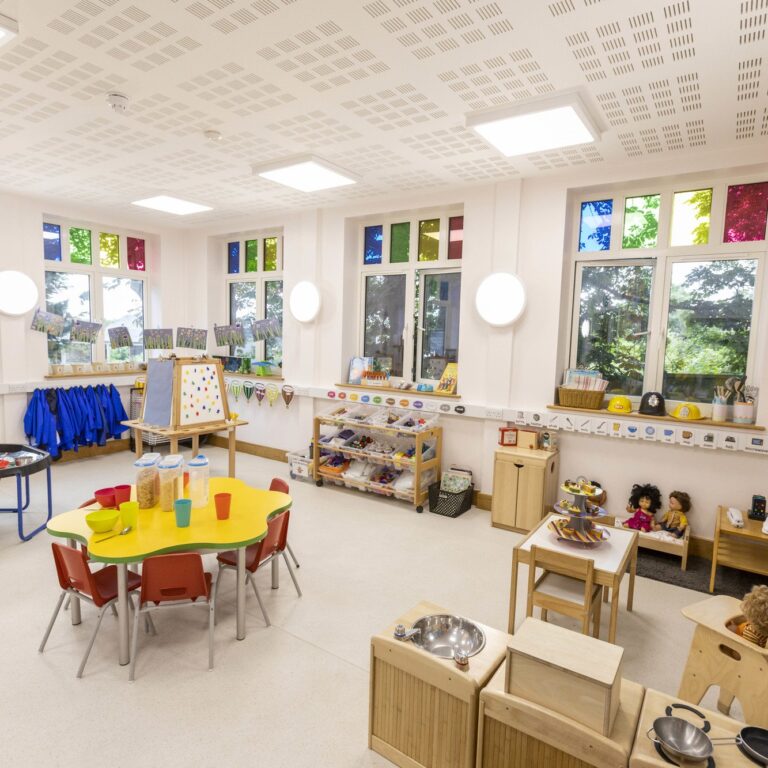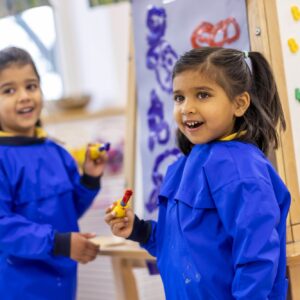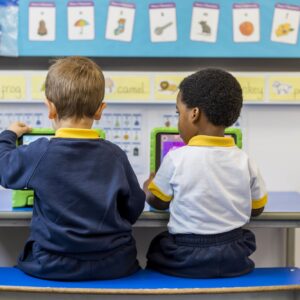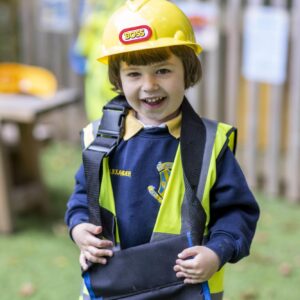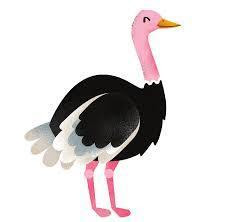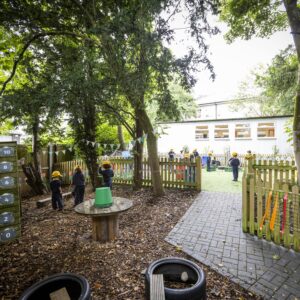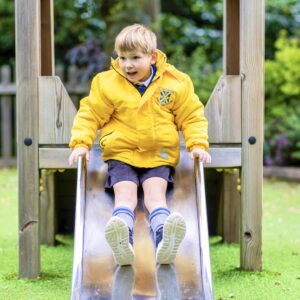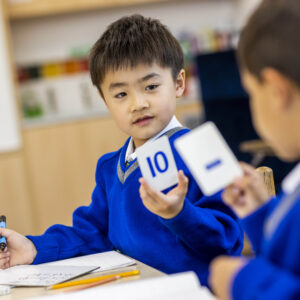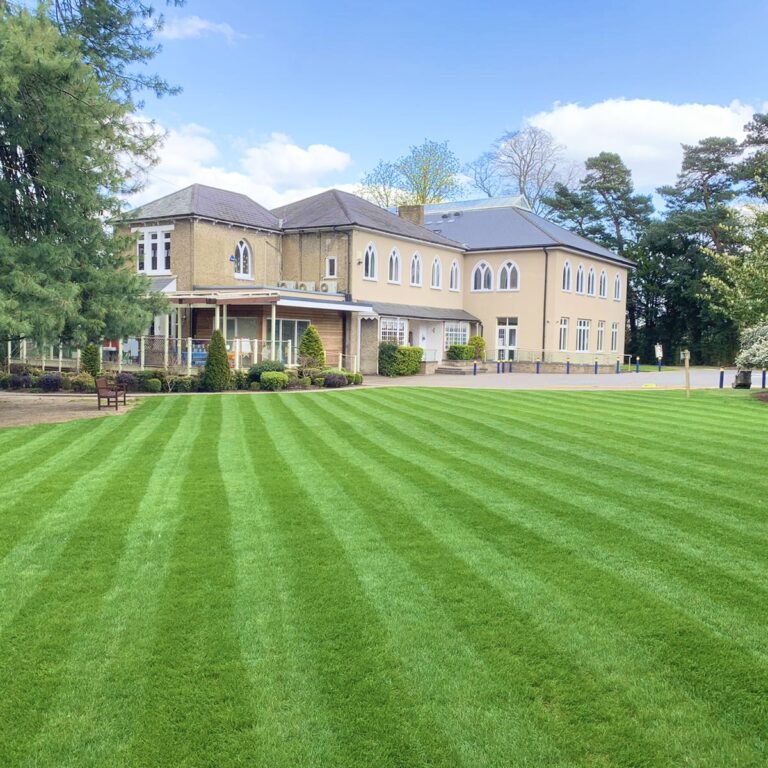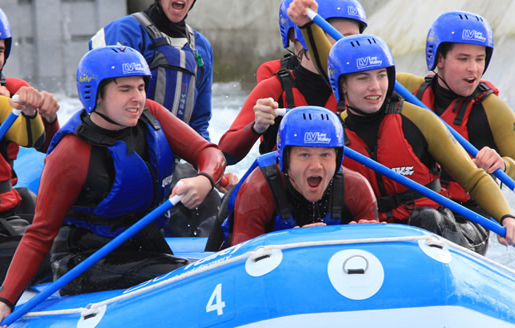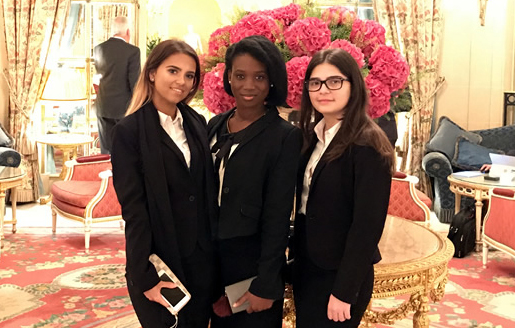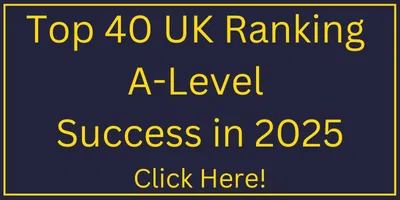Early Years Foundation Stage (EYFS)
Early Years
At St. John’s, we believe that children deserve the best possible start to their education. Our Early Years team strive to provide an environment where children feel safe, happy, supported and secure. We consider each child’s interests, wants and needs so that they are ready to learn and exceed. We are committed to providing a quality Early Years education that is; creative, challenging, active and broad in order to develop a thirst and excitement for learning.
FACILITIES
Our fantastic staff team are dedicated, well-motivated and experienced, and this ensures the children flourish here at St. John’s. We offer a nurturing and caring environment with a wide range of facilities to support the children including our Nursery classroom which is a purpose-built space that is bright, spacious and secure, designed to welcome children on their third birthday. Our caring atmosphere ensures children feel valued and enables them to develop the confidence and self-esteem to try new things and develop a ‘can-do’ attitude. Staff ensure a seamless transition into our Reception class, where children benefit from another spacious, vibrant classroom with the addition of a large, covered balcony for outside learning in all conditions. Premises include an additional space called the ‘Maths Playroom’ which is well-resourced to encourage play with mathematical games, resources and activities; this is also used as a quiet, relaxed space for small group work.
Outdoor facilities include two bespoke playgrounds, for the sole use of our children in the EYFS to cater for pupils’ gross motor skills. We also make full use of our extensive school grounds for drama, games and Forest School. Our children can often be found building dens in the trees or tracking animal prints through the snow!
CURRICULUM
Our ambitious curriculum provides children with the skills, knowledge and understanding they need to prepare them for the challenges of Key Stage One and beyond. We embed the right habits for learning through recognising the importance of nurturing the ‘Characteristics of Effective Learning’, encouraging problem solving, creativity and communication, fostering children’s natural curiosity and promoting innovation and reflection.
Pupils learn through a balance of child-initiated and adult-directed activities with a gradual shift from the former to the latter as children move through our EYFS. In Reception, the timetable is carefully structured so that children have directed teaching in literacy, mathematics and phonics every day. These sessions are followed by focused group work where children work with a member of staff to develop their individual targets.
We believe that the Early Years are critical in children’s development and that the EYFS builds a firm basis for future learning, development and independence. Therefore we educate the whole child and promote independence, curiosity, respect and resilience.
We aim to:
- Identify and value children’s strengths, interests and learning styles so that they develop confidence, respect, independence and high self-esteem.
- Develop and build solid relationships with our children and their families.
- Cultivate children’s attitudes to learning, self-motivation, inquisitiveness, self-confidence and responsibility.
- Nurture and encourage children’s curiosity, reflectiveness, creativity and resourcefulness.
- Develop children’s responsive thoughts and ideas, and value their work, conversations and feelings.
- Provide the highest quality learning experiences for all children. Learning that is exciting, creative, real, challenging; encouraging risk taking and fun.
- Provide the highest quality teaching and learning that takes into account the interests of the children, their developmental and relating needs and allows them to make pr
- Support children’s learning by providing them with first hand learning experiences that are rooted in purposeful, resilient play
- Support the children in making the transition from their first stage of education to the next with confidence.


